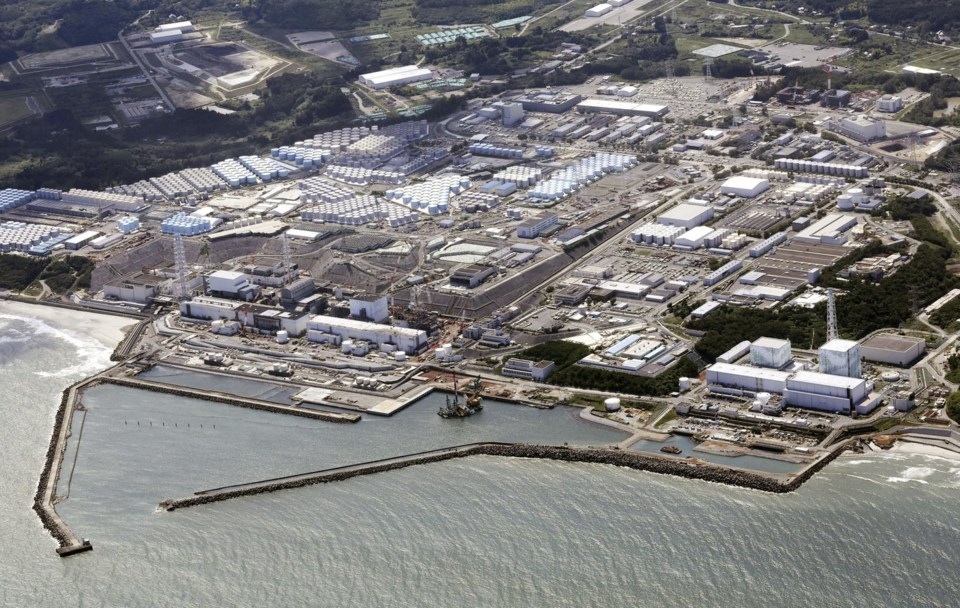TOKYO (AP) — China will resume Japanese seafood imports that it banned in 2023 over worries about Japan's discharge of wastewater from the damaged Fukushima Daiichi nuclear power plant into the sea, a Japanese official said Friday.
The issue has been a significant political and diplomatic point of tension for the wary Asian powers.
Agriculture Minister Shinjiro Koizumi said the two sides reached an agreement after Japanese and Chinese officials met in Beijing and the imports will resume once the necessary paperwork is done.
China did not immediately comment. China blocked imports of Japanese seafood because it said the release would endanger the fishing industry and coastal communities in eastern China.
Japanese officials have said the wastewater must be released to make room for the nuclear plant’s decommissioning and to prevent accidental leaks. They say the treatment and dilution will make the wastewater safer than international standards and its environmental impact will be negligible.
Friday's announcement is based on an agreement between the two nations that Beijing would take steps toward ending the ban by joining water sampling missions by the United Nations' International Atomic Energy Agency.
The March 2011 nuclear meltdowns followed an earthquake and tsunami. There were meltdowns in the plant's three reactors, causing large amounts of radioactive water to accumulate. The water release has been a milestone for the plant’s battle with an ever-growing radioactive water stockpile that officials say has hampered the daunting task of removing fatally toxic melted debris from the reactors.
The wastewater was treated and heavily diluted to reduce the radioactivity as much as possible before Japan began discharging the wastewater in August 2023.
Last September, then-Prime Minster Fumio Kishida said the two sides reached “a certain level of mutual understanding” that China would start working toward easing the import ban and join the IAEA expanded monitoring of wastewater discharges.
People inside and outside Japan protested the initial wastewater release. Japanese fishing groups said they feared it would further damage the reputation of their seafood. Groups in China and South Korea also raised concerns.
Tokyo Electric Power Company Holdings has said the utility would compensate Japanese business owners appropriately for damages suffered by export bans.
Mari Yamaguchi, The Associated Press



